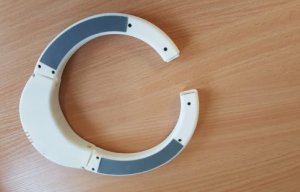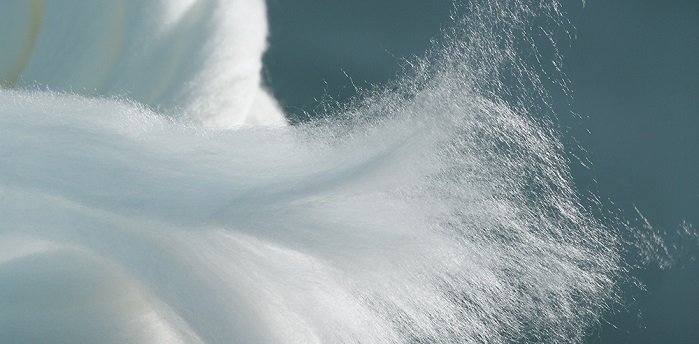
Smart life-collar to save lives
The Lenzing Group has been providing both financial support and textiles made of its fibres to Debra Austria, the patient organisation.

12th July 2019
Innovation in Textiles
|
Lenzing
Lenzing fibres are characterised by their special softness. © Lenzing AG
The Lenzing Group, a market leader for specialty fibres from the renewable raw material wood, has been providing both financial support and textiles made of its fibres to Debra Austria, the patient organisation for butterfly children.
The Tencel branded lyocell and modal fibres, which are being used, are particularly soft and smooth and therefore very skin friendly. In turn, they help to improve the quality of life for the butterfly children, the company explains.
In recent months, several patients with the skin disorder Epidermolysis Bullosa (EB) have tested leggings, undergarments, pajamas, leggings, quilts and bed linens made of Tencel fibres and have found them to be comfortable and skin friendly. The skin of EB patients is fragile like the wings of a butterfly. For this reason, coarse fibres, scratching seams, buttons, zippers and fibres which hardly or do not at all absorb sweat frequently lead to additional blisters and sores and increased itching. In contrast, Tencel fibres feature particularly good moisture management and thus support the nature temperature-regulating properties of the body.
“Lenzing fibres are characterised by their special softness and are thus pleasant for the ‘butterfly children’ to wear,” said Stefan Doboczky, CEO of the Lenzing Group. “We are proud that textiles made of our fibres are very positively received by young and older EB patients and that we are able to make an important contribution here to improving their quality of life. We make use of positive feedback to develop new products which are even softer and more comfortable. In this way they make a positive difference for the users.”
“I am pleased that the Lenzing Group is devoting its attention to further developing specialty fibres, which is an important topic for butterfly children. This is because pleasant and soft garments which support the nature temperature regulation of the skin and thus a cool and dry feeling contribute to a better quality of life for younger and older patients on a daily basis,” said Rainer Riedl, father of a butterfly child and Chairman and Managing Director of Debra Austria.
Two companies, Mey and Hefel, have provided garments and linens made of Lenzing fibres. Both companies are longstanding cooperation partners of the Lenzing Group and use lyocell and modal fibres for daywear, nightwear and beddings.
Epidermolysis Bullosa (EB) is a genetic disease which is currently incurable. The skin of affected people is particularly vulnerable due to the lack of structural proteins, like the wings of a butterfly. This condition is the origin of the name butterfly children.
Thanks to its Tencel fibres, the Lenzing Group has a product, which stands out due to its particular softness and high moisture absorption and therefore offers outstanding wearing comfort. The cooperation of Debra Austria and the Lenzing Group, as well as other partners, such as the Ebensee Fashion School, will continue.

Business intelligence for the fibre, textiles and apparel industries: technologies, innovations, markets, investments, trade policy, sourcing, strategy...
Find out more